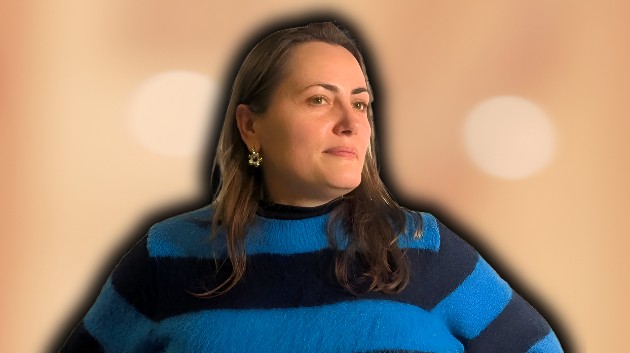Barbara Bargiel: Visionary Filmmaker Championing Inclusivity and Genre Innovation in British Cinema

Barbara Bargiel is a name rapidly gaining attention in the British and international film landscapes. A Polish–British filmmaker based in London, Bargiel has carved a distinctive niche through her genre-bending short films, deeply personal narratives, and a powerful commitment to gender inclusion within the industry. With over two decades of creative experience and recent involvement in prestigious programmes such as BAFTA Connect and Sundance Collab, Bargiel represents a new wave of cinema—personal, political, and unapologetically bold. This article delves deep into her journey, inspirations, and lasting impact on British and European filmmaking.
Early Life and Artistic Roots
Barbara Bargiel’s creative sensibilities are deeply rooted in her Polish heritage, which continues to influence her cinematic voice today. Her background in performance art, photography, and visual storytelling predates her formal education in film, offering her a multidisciplinary foundation that informs the unique aesthetic and thematic choices in her work.
Before formally entering the world of film direction, Bargiel was involved in a range of artistic disciplines. From experimental installations to performance art, she explored the boundaries of human experience, often focusing on themes such as isolation, justice, and identity. These experiences would later evolve into the narrative backbone of her cinematic projects.
London: A Creative Epicentre
Relocating to London was a turning point in Barbara Bargiel’s career. The city’s vibrant multiculturalism and dynamic creative industries offered her the environment needed to grow her ideas into fully realised visual narratives. For more than twenty years, London has served as her creative home—a place where she has built a strong professional network and continued to hone her craft.
Within the UK’s competitive creative scene, Bargiel has not only survived but thrived, especially as a female director determined to work on her own terms. London became the launchpad for her commitment to assembling all-female crews, creating inclusive sets that promote underrepresented talent and challenge industry norms.
Thematic Core: Women, Justice, and Transformation
A defining feature of Barbara Bargiel’s work is her unwavering focus on women’s stories. Whether through surrealistic metaphors, grounded realism, or playful genre-mixing, her narratives centre around the emotional and psychological complexities of women navigating unjust or extraordinary circumstances.
Her film Generic is an emblematic example—narrating the transformation of a woman navigating a soulless bureaucratic world. Through minimalism and silence, Bargiel captures themes of alienation, control, and the quiet rebellion of reclaiming one’s voice. Similarly, Herstory and Coch Gwir offer searing critiques of gender roles, power structures, and the hidden stories that shape everyday lives.
What makes her storytelling distinctive is the combination of deeply introspective character studies with broad societal commentary. It’s not just about telling stories—it’s about holding a mirror to the world and urging viewers to confront uncomfortable truths.
Signature Style and Genre Fluidity
Barbara Bargiel is a director who refuses to be categorised. Her films often blend genres—merging drama with fantasy, comedy with surrealism, and fiction with performance art. This genre fluidity is one of her most celebrated traits, allowing her to construct worlds that oscillate between the real and the imaginary, while maintaining emotional authenticity.
Her earlier works such as Poison and Martin & The Magic Muffins are testament to her risk-taking spirit. Poison challenges the viewer through unsettling imagery and symbolic motifs, while Martin & The Magic Muffins delves into whimsical storytelling with undercurrents of grief and resilience.
This genre exploration is not mere experimentation for its own sake. Instead, it is deeply intertwined with the narrative structure and thematic intention of each project. Bargiel chooses the genre that best suits the emotional tone and political subtext of her story—often resulting in films that are both cerebral and viscerally affecting.
Dedication to Inclusion and Female Empowerment
Perhaps one of the most revolutionary aspects of Barbara Bargiel’s filmmaking is her all-female crew policy. In an industry that continues to grapple with gender parity, Bargiel has taken decisive steps to address the imbalance from within. She does not just tell women’s stories—she ensures that women are empowered behind the camera as well.
Her commitment to inclusion extends beyond gender. Through her participation in the BFI Skill-Up Mentoring Programme, Bargiel has worked with neurodiverse, deaf, and disabled talent, encouraging a broader representation of voices in storytelling. This emphasis on empowerment and accessibility isn’t a branding exercise—it’s a foundational ethic that defines her working style.
Training and Professional Development
Barbara Bargiel’s artistic and technical training is both rigorous and prestigious. During the COVID-19 pandemic, she enrolled in the National Film and Television School (NFTS), one of the UK’s most renowned institutions for film education. The training provided her with advanced technical skills and expanded her creative toolbox, allowing her to execute her ambitious ideas with even greater precision.
Following this, she was selected for the highly competitive Sundance Collab Directing and Writing Fellowships between 2021 and 2022. These programmes brought her into dialogue with international filmmakers, mentors, and producers, helping her refine her voice while maintaining her artistic integrity.
More recently, she was chosen as a BAFTA Connect Director—a title reserved for emerging filmmakers working on debut features. This platform has allowed her to collaborate with established figures in the British film industry and gain critical support as she transitions into long-form cinema.
Festival Circuit Success
Barbara Bargiel’s films have made a significant impact on the international festival circuit. From the Oregon Short Film Festival to the Birmingham Film Festival and the New Renaissance Film Festival, her projects have not only been selected but frequently awarded.
Generic, for instance, won the Best Drama award at the Walthamstow International Film Festival and was a finalist at The Big Syn Spotlight Prize in 2024. These accolades are a reflection of both her artistic merit and the cultural relevance of her stories.
What makes her stand out at festivals is her ability to engage deeply with current socio-political themes without compromising on narrative elegance. Her work resonates with both audiences and critics, bridging the gap between art-house cinema and social activism.
Barbara Bargiel in 2025 and Beyond
Looking ahead, Barbara Bargiel is currently working on her debut feature—a highly anticipated project that promises to consolidate her unique voice in British cinema. Backed by BAFTA and informed by her years of experience across short films, installations, and development labs, the project is expected to draw significant attention both nationally and internationally.
Simultaneously, she continues to mentor emerging filmmakers, advocate for underrepresented voices, and explore new forms of storytelling. With initiatives like Sea Change Professional Development Lab and support from Film & TV Charity, her upcoming work will likely push even more boundaries—both creatively and culturally.
Her ambition is not just to create films but to reshape the landscape of filmmaking itself. She believes in collaborative processes that centre empathy, curiosity, and transformation. In many ways, Barbara Bargiel is less a filmmaker and more a movement—a catalyst for change within an industry yearning for innovation and inclusivity.
Conclusion
Barbara Bargiel’s rise in the British film industry is no accident. It is the result of years of dedicated artistic practice, a firm ethical stance on representation, and an unrelenting desire to tell stories that matter. Her films provoke thought, stir emotions, and spark important conversations about justice, identity, and the lived experiences of women and marginalised individuals.
As the industry continues to evolve, figures like Bargiel are not only welcome—they are essential. With her debut feature on the horizon and a growing list of accolades under her belt, there is little doubt that Barbara Bargiel is set to become one of the defining voices of contemporary British cinema.



